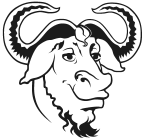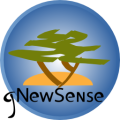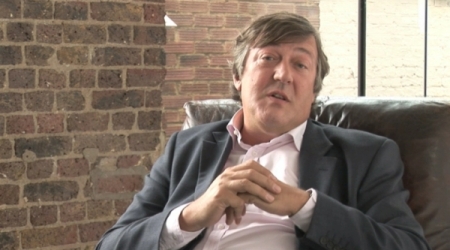Richard Stallman announced in September 1983 the plan to develop a free software Unix-like operating system called GNU. GNU is the only operating system developed specifically for the sake of users' freedom.
Urgent action items
- Stop the EU torpedo amendments to the Telecom bill, support the La Quadrature du Net campaign
- Take action: France plans to adopt a law, which would punish people who fail to 'respect' copyright on the Internet.
- Travelling from China to the USA in the next two weeks? Can you help bring some batteries? campaigns@fsf.org.
What is GNU?The GNU Project was launched in 1984 to develop a complete Unix-like operating system which is free software: the GNU system. 
GNU's kernel isn't finished, so GNU is used with the kernel Linux. The combination of GNU and Linux is the GNU/Linux operating system, now used by millions. Sometimes this combination is incorrectly called Linux. There are many variants or “distributions” of GNU/Linux. 
We recommend the GNU/Linux distributions that are 100% free software; in other words, entirely freedom-respecting. The name “GNU” is a recursive acronym for “GNU's Not Unix”; it is pronounced g-noo, as one syllable with no vowel sound between the g and the n. What is Free Software?“Free software” is a matter of liberty, not price. To understand the concept, you should think of “free” as in “free speech”, not as in “free beer”. Free software is a matter of the users' freedom to run, copy, distribute, study, change and improve the software. More precisely, it refers to four kinds of freedom, for the users of the software:
What is the Free Software Foundation?The Free Software Foundation (FSF) is the principal organizational sponsor of the GNU Project. The FSF receives very little funding from corporations or grant-making foundations but relies on support from individuals like you. Please consider helping the FSF by becoming an associate member, buying manuals and gear or by donating money. If you use Free Software in your business, you can also consider corporate patronage or a deluxe distribution of GNU software as a way to support the FSF. The GNU project supports the mission of the FSF to preserve, protect and promote the freedom to use, study, copy, modify, and redistribute computer software, and to defend the rights of Free Software users. We support the freedoms of speech, press, and association on the Internet, the right to use encryption software for private communication, and the right to write software unimpeded by private monopolies. You can also learn more about these issues in the book Free Software, Free Society. The FSF also has sister organizations in Europe, Latin America and India. |
Freedom FryMr. Stephen Fry introduces you to free software, and reminds you of a very special birthday. GNUs FlashesThank you SGI for freeing the GNU/Linux 3d desktop! French citizens -- Hadopi plans to adopt a law, 'Loi Creation et Internet', which would punish people who fail to 'respect' copyright on the Internet. Numerama presents ten reasons to reject this law. The FSF is taking nominations for its two annual awards, the Award for the Advancement of Free Software and the Award for Projects of Social Benefit. Submit your nominations for the 2008 Free Software Awards -- Nominations are requested by 31 October 2008. For other news, as well as for items that used to be in this GNUs Flashes section, see What's New in and about the GNU Project. Take Action
|
More information |
|
|
|
